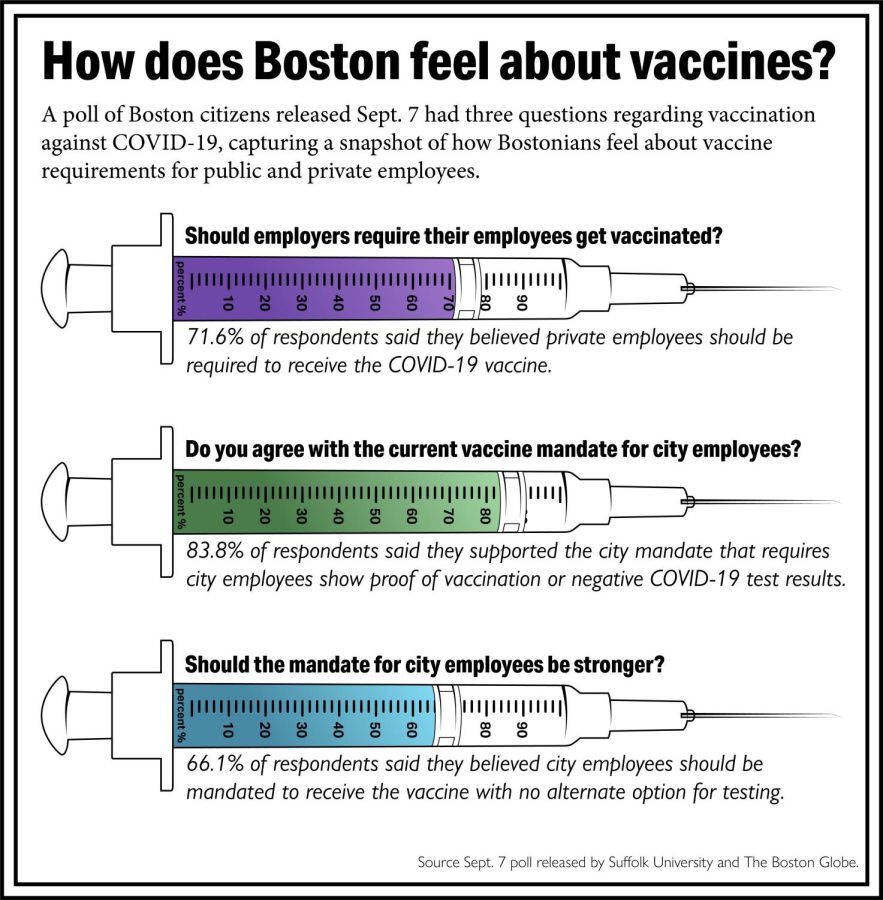Op-ed: Safety is most important — avoid those who aren’t fully vaccinated
Data visualization by Avery Bleichfeld
As the Delta variant’s presence continues, we must remain safe by physically staying away from those who aren’t fully vaccinated.
October 16, 2021
The ideal of freedom continues to permeate American culture and society, even when it has proved to be enveloped with hypocrisy over the years. As such, when a pandemic struck humanity, it was unsurprising to see a conflict between personal freedoms and public health imperatives in the United States.
Dr. Brytney Cobia’s sobering post on Facebook that went viral painted a bleak picture of the last few moments her patients faced: holding her hand, begging for a vaccine and unable to realize that it’s simply too late. Their families are lost; they cry to Dr. Cobia and say they didn’t know. They assumed it was political, that COVID-19 was a hoax.
Even though 65% of the nation’s population has received at least one dose of a COVID-19 vaccine and 56% are fully vaccinated, the Delta variant continues to sweep through the country. However, this is not proof that vaccines do not work, for unvaccinated people are almost entirely responsible for the number of cases that have caused almost 100,000 U.S. deaths.
Even though the average vaccine efficacy rate has decreased due to the Delta variant, vaccines remain highly effective against COVID-19: Moderna remains approximately 50% to 95% and Pfizer about 39% to 96% effective. Additionally, vaccines provide about 60% to 95% protection against hospitalization.
As such, it is tragically those who are unvaccinated that are at the most risk. Unvaccinated people are 11 times more likely to die of COVID-19 than those who are fully vaccinated, and about 98% of Americans who have died of COVID-19 since the start of summer are unvaccinated.
Against the backdrop of these numbers, the question of if vaccinated people should see friends, family or strangers who aren’t vaccinated arises. To me, it’s an obvious decision: Distance yourself from those who aren’t vaccinated.
Although vaccines are highly effective, it does not make you immune to COVID-19. This means physically seeing unvaccinated people puts you at a higher risk of catching the virus than if you were seeing fully vaccinated folks. Furthermore, this increased chance of transmission makes it more likely that the virus could mutate into a variant resistant to the current generation of COVID-19 vaccines, setting back our fight against the pandemic. So, the decision to not get vaccinated still clearly affects fully vaccinated people, contrary to what many unvaccinated people say.
To be clear, the legitimate concerns that communities of color possess — in contrast to those who have made it a political issue — about the vaccine should be met with understanding due to the systemic racism and historical inequities present in American health care.
Additionally, I do not even particularly blame those who are hesitant to get vaccinated, for it speaks to a greater issue of misinformation by the media. Nearly every type of media, whether it be social media, local newspapers or radio, can contribute to the propagation of misinformation concerning vaccines. It was found that some local broadcast, print and radio outlets have been inadvertently disseminating anti-vaccine messaging.
The problem does not lie in fake news; instead, it is the inherent nature of digital capitalism that stokes fear in the masses and sensationalizes in order to produce false but profitable clickbait stories. For example, in 2020, tabloids such as TMZ and Daily Mail — known for their splashy headlines — reported revenues of about $126 million and a staggering $310 million, respectively. Despite the general public’s understanding that the majority of their news is unfounded, we still find ourselves attracted to these sensational stories due to their “emotional impact.”
In the age of COVID-19, it pays to be a liar.
These systemic issues cannot easily be solved, and the jury is still out on if solutions like President Joe Biden’s new vaccine mandate for many American workers will actually work to increase vaccination rates. It’s clear that changing the beliefs and habits of unvaccinated people is a Herculean task.
In order to best protect everyone, we can change our own habits by distancing ourselves from unvaccinated people and continuing mask use indoors. Ultimately, for students and staff at Northeastern, remaining diligent and tracking the number of positive cases through weekly testing provides a more realistic resolution in the process of returning to “normal.”
Sanjana Sanghani is a second-year economics and political science major. She can be reached at sanghani.s@northeastern.edu.







